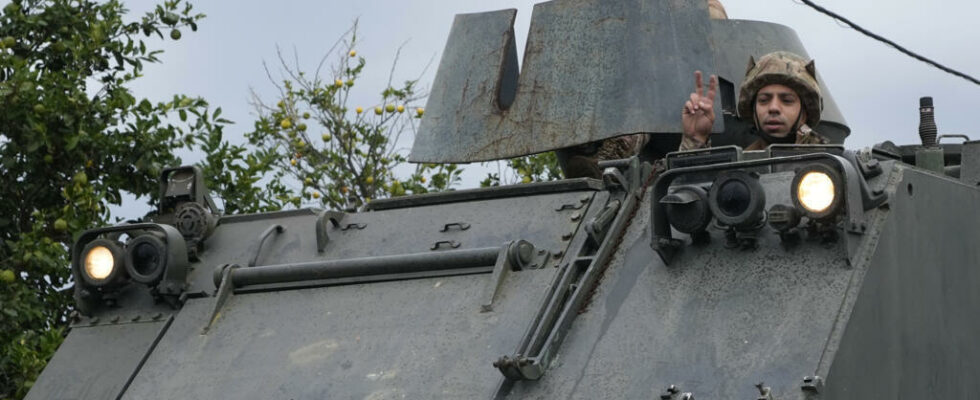Under the terms of the ceasefire that came into force just a week ago (and dangerously punctuated by violence), the Lebanese army must deploy in South Lebanon, near the Israeli border, a region until now controlled and dominated by Hezbollah. This very fragile scenario represents a challenge for the Lebanese army.
4 mins
From our special correspondents in Tire,
The scene takes place in Tyre, the large city in the SouthLebanon. In front of a group of houses reduced to pieces by Israeli bombings, this resident sighs. He believes neither in the ceasefire nor in the deployment of the Lebanese army. “ How many planes? The Lebanese army, how many planes? With what will she defend us? With the flag? “, he asserts. “We have no weapons, no decisions, no state, no money. »
This resident of South Lebanon is well aware that his army is no match for Israelbut this is not the primary objective of its deployment at the border, according to Khalil Helou, former general in the Lebanese army. He now teaches geopolitics at university.
“ We have everything we need to have a minimum of balance with the armament of the Hezbollah “, he says. “ Despite the perception that has been ingrained in people’s minds that the army is incapable, that it has no weapons. Moreover, this is not a combat deployment against Israel, it is a peacekeeping deployment, it is a deployment of the restoration of the sovereignty of the Lebanese State. »
Delicate mission
This deployment remains a delicate mission for the Lebanese army, explains Khalil Helou. “ When the army begins its mission – so far, it has not started in earnest – if Hezbollah withdraws before then, so much the better, so it respects its commitments. If he does not withdraw and the army begins to deploy and there is friction, the agreement gives the Lebanese army all the prerogatives it needs to remove all this using force, not necessarily shoot him with bullets or shells, but ask these people to run away, at least in the first phase of the application “, he said.
Then Khalil Helou adds: “ But again, what I fear is that Hezbollah is trying to maneuver for time, to stay south, etc., especially since the Israelis don’t seem very keen on a ceasefire. And if Hezbollah is going to continue to procrastinate like that, if it ever goes in that direction, in my opinion, it’s a ceasefire that is super fragile. »
For the former general, the ceasefire depends less on the capabilities of the Lebanese army than on the willingness of Hezbollah and Israel to respect it.
Also readLebanon accuses Israel, which blames Hezbollah, of violating the truce
What role for the Lebanese army?
Although movements of the Lebanese army have been observed in the south of the country, we are still a long way from the announced deployment of around 10,000 men. The ceasefire is based on United Nations Resolution 1701. It provides for the dismantling of Hezbollah’s arsenal south of the Litani River. A challenge and also a risk for the Lebanese army, according to one of its former generals, Mounir Chehade.
“ Already before the war, the Lebanese army needed double its strength to ensure its mission of implementing resolution 1701. The question is that of the role of the Lebanese army “, points out Mounir Chehade. “ Is this the role of a gendarmerie? Who deploys soldiers with simple vehicles, without armor, without tanks, without missiles, without anything, to patrol with UNIFIL? Who receives information about possible resistance weapons depots and who is told to go and search here and there? And if the Lebanese army does not comply, it will be said that it is not implementing resolution 1701. »
The new leader of Hezbollah Naïm Qassem assured a few days ago that his organization would “ cooperate » with the Lebanese army.
